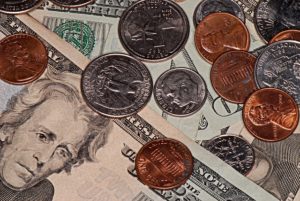 Unfortunately, we know that financial emergencies and unexpected expenses, like car repairs and visits to the doctor, happen. How can you help yourself be prepared to cover whatever unplanned costs may arise? Have you ever considered establishing an emergency fund?
Unfortunately, we know that financial emergencies and unexpected expenses, like car repairs and visits to the doctor, happen. How can you help yourself be prepared to cover whatever unplanned costs may arise? Have you ever considered establishing an emergency fund?
What is an Emergency Fund?
An emergency fund is a savings account to cover the costs of an unexpected financial emergency that disrupts your financial plans. An emergency fund is protection against life’s unexpected events. This is money that you set aside specifically for those unplanned expenses. In addition, these unexpected expenses can be small or large such as a car repair or medical bill. An unplanned financial emergency could be a loss of a job; therefore, a loss of income. An emergency fund is like an insurance policy; it protects you against risks.
Who needs an Emergency Fund?
Everyone needs an emergency fund; without an emergency fund, any unplanned financial event could set you back and turn into debt. This potentially has a lasting impact on you and your family. Are you relying on credit cards, loans or family in a financial crisis? How can you buffer that?
How much is needed in an Emergency Fund?
The amount in an emergency fund depends on you and your family’s situation. Look to your past for those situations that have caused you unexpected expenses. How much did they cost? This might help you set a goal for how much you need to set aside for an emergency fund.
What are some strategies for saving an emergency fund?
- Start with a goal of $500 – $1,000. Which is approximately $42.00 – $84.00 per month.

- Begin with any small amount, even $5.00 or $10.00 per paycheck; $130.00 – $260.00 per year.
- Use the save $1.00 per day strategy; at the end of the year you will have saved about $352.00.
- Save pocket change in a jar; the average amount saved can be hundreds of dollars per year.
- Financial experts suggest saving at least three months’ worth of living expenses, ideally it is best to have six months’ worth of living expenses; which is no easy task.
- Commit to saving a portion of your tax refund to jump start your emergency savings.
 Where to save it?
Where to save it?
- An emergency fund should be an account that keeps the money safe from loss.
- Emergency savings should be put into a savings account that is easily available or converted to cash at any time with no fee or restrictions.
- Save for an emergency fund in a dedicated savings account. Have it automatically transferred from your checking into your savings account.
In conclusion, make an emergency fund a priority. Develop a schedule to save and stick with it. The benefit of having an emergency fund is that it reduces stress and provides a peace of mind.


This is always an important topic! Thanks for the reminder and the tips.